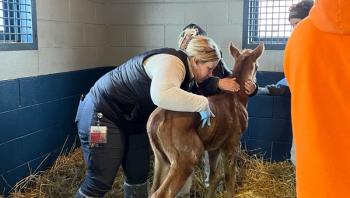
AVMA Executive Board cites need for guidelines on carcass disposal
Schaumburg, Ill. - Many changes were made by the American Veterinary Medical Association (AVMA) Executive Board during its fall and winter meetings, though most of the changes were of the minor "housekeeping" variety.
SCHAUMBURG, ILL. — Many changes were made by the American Veterinary Medical Association (AVMA) Executive Board during its fall and winter meetings, though most of the changes were of the minor "housekeeping" variety.
The board revised the AVMA policy on "National Antimicrobial Resistance Monitoring System," as recommended by the Food Safety Advisory Committee, to encourage timely reporting of data. It also revised the AVMA Animal Agricultural Liaison Committee to the National Animal Identification System Policy to grant state and federal animal health officials 24-hour access to identification databases and to incorporate all animals into the identification system immediately upon their arrival.
The Committee on Environment Issues noted that proper animal carcass disposal has become increasingly problematic, leading the AVMA to support increased research and education efforts for the development of appropriate methods and guidelines for animal carcass disposal, AVMA says.
The Council also recommended expanding AVMA's policies on energy conservation and other green practices, a recommendation AVMA's Executive Board accepted.
The executive board also amended policies on investment strategies, wild and exotic animals, and endangered species.
The executive board made minor revisions to a number of other policies, including increased fees for examinations foreign veterinarians must pass to practice in the United States. Additionally, the AVMA Accreditation Standards Task Force, which was to review the Council on Education's Standards of Accreditation, was disbanded because of forthcoming efforts by the North American Veterinary Medical Education Consortium that will likely revise the accreditation standards anyway.
Newsletter
From exam room tips to practice management insights, get trusted veterinary news delivered straight to your inbox—subscribe to dvm360.




